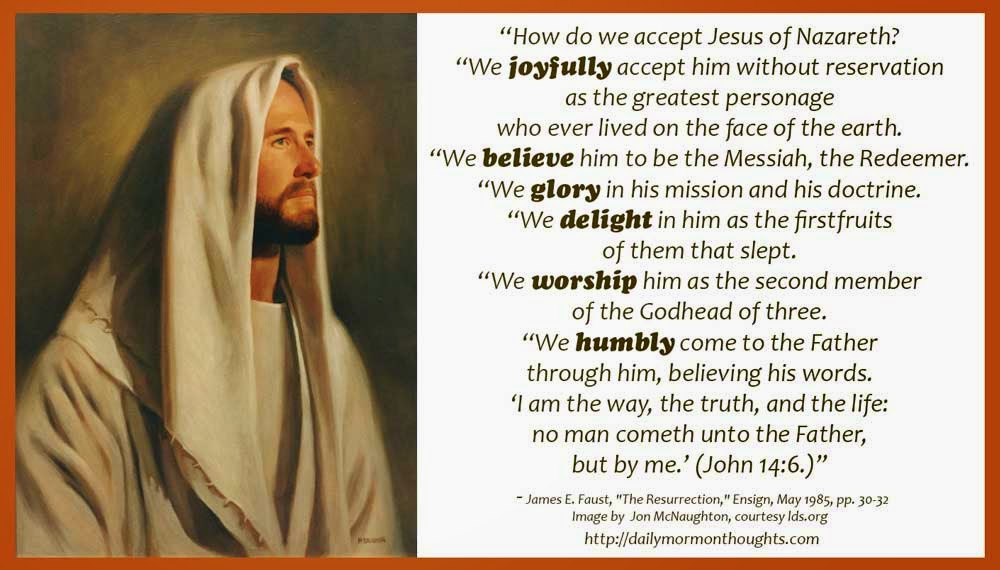"How do we accept Jesus of Nazareth?
"We joyfully accept him without reservation as the greatest personage who ever lived on the face of the earth.
"We believe him to be the Messiah, the Redeemer.
"We glory in his mission and his doctrine.
"We delight in him as the firstfruits of them that slept.
"We worship him as the second member of the Godhead of three.
"We humbly come to the Father through him, believing his words. 'I am the way, the truth, and the life: no man cometh unto the Father, but by me.' (John 14:6.)
"A hallmark of a disciple is described in the words of the Master: 'By this shall all men know that ye are my disciples, if ye have love one to another.' (John 13:35.) ...
"With the abundance of testimony, both ancient and modern, sealed by the witness of the Holy Spirit of God, we stand firm and unequivocating in our knowledge that Jesus of Nazareth is the resurrected Savior. His arms are stretched forth to all men... who, by accepting Him in His appointed way, may become not just believers but true disciples and with Paul hope to 'obtain a better resurrection.' (Heb. 11:35.)
"To all we say, 'May Christ lift thee up, and may... the hope of his glory and of eternal life, rest in your mind forever.' (Moro. 9:25.)"
- James E. Faust, "The Resurrection," Ensign, May 1985, pp. 30-32
Click here to read the full talk
This beautiful invitation and testimony from a life-long disciple of the Savior encapsulates the spirit of the Easter season. Much is embodied in that question, "How do we accept Jesus of Nazareth?" We much accept him with joy, with delight, with worship. But especially with our whole hearts, and our whole lives.






































